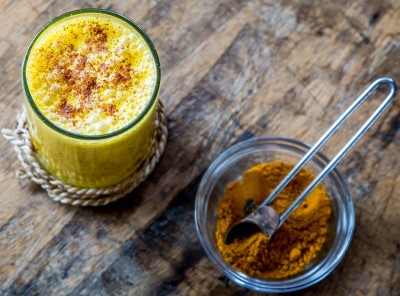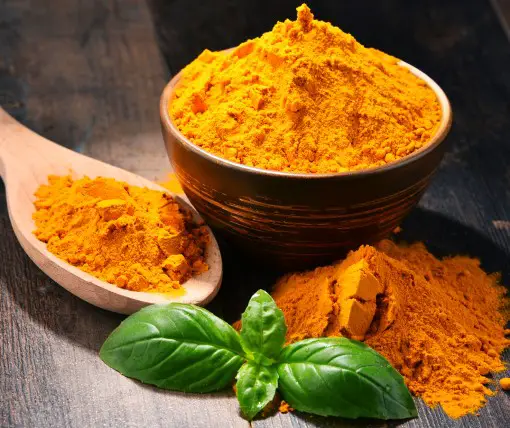
Turmeric for sleep apnea: what we know and how best to get it
By Jason Wooden, PhD | July 2, 2020
There’s growing interest in using turmeric for sleep apnea and many other ailments that involve excessive inflammation. It’s a natural remedy well known for its anti-inflammatory properties.
While turmeric hasn’t been directly tested for sleep apnea, promising results have been seen for other inflammation-linked health conditions. For best results, experts recommend taking a supplement that combines medicinal doses of turmeric with a bioenhancer.
Why turmeric for sleep apnea is worth a try
There’s growing interest in natural remedies like turmeric for sleep apnea and many other ailments.
Sleep apnea is a major sleep killer making life miserable for nearly a billion adults worldwide.
Maybe you’re strapped for cash and you’re wondering if there’s something you can do on the cheap.
It could also be that you’ve tried CPAP is it hasn’t worked out for you.
Or maybe it’s just that you want to go natural when it comes to your health.
Turmeric, well known for its use in Indian curries and other middle eastern dishes, is certainly worth a look. Historically, it’s also been used in both traditional Indian and Chinese medical systems.
Curcumin is the main component of turmeric responsible for its well-known anti-inflammatory properties. It’s been used to help with ailments ranging from inflammatory disorders to respiratory illnesses.
That’s all good, but what you’re really wondering about is what it can do to help your sleep apnea.
Let’s take a look at what we know and how best to get your turmeric for sleep apnea.
Sleep apnea and inflammation
The reason why people are looking at using turmeric for sleep apnea is because of the link between inflammation and sleep apnea.
Inflammation has been found to play a role in many health conditions including heart disease, diabetes, cancer, arthritis, and digestive disorders.
So, it’s no surprise researchers have found a connection to sleep apnea.
To be clear, inflammation is an important process. It’s how your body mobilizes to fight infection and helps the healing process.
However, too much inflammation for too long can actually harm the body.
Some experts are now viewing obstructive sleep apnea as a low grade chronic inflammatory disease.
Patients with obstructive sleep apnea, the most common sleep apnea type, have upper airway and systemic inflammation.
Keep in mind the body is deprived of oxygen due to airway obstruction. (That’s also why your brain wakes you up out of deep sleep into light sleep.)
It’s believed that the lower concentrations of oxygen is what triggers inflammation.
And, in studies, patient sleep apnea symptoms have been found to correlate with high levels of inflammation – the worse the sleep apnea is the more inflammation found in the body.
How can turmeric for sleep apnea help?
It should now be more obvious why people are looking at turmeric for sleep apnea.
The thinking goes like this…
If you take turmeric, it will help keep the inflammation down which means less swelling in the airways, easier air movement, and fewer night time sleep apnea awakenings.
Is there any scientific evidence for this?
Unfortunately, turmeric for sleep apnea hasn’t yet been directly tested in clinical studies.
However, curcumin, the anti-inflammatory chemical component of turmeric, has been studied and found to help inflammation-linked diseases. This includes things like cardiovascular disease, arthritis, diabetes, and various digestive disorders.
So, there’s good evidence turmeric can fight inflammation in the body and reason to believe it can help sleep apnea inflammation too.
And don’t forget that turmeric can help you sleep better in other ways too since inflammation is linked to other things that can wreck your sleep.
Chronic inflammation can mess up your sleep-wake clock making it harder to stay asleep and get REM sleep, increase your stress levels, and worsen night time pain.
The best ways to take turmeric for sleep apnea
There’re a couple things to keep in mind if you’re serious about taking turmeric for sleep apnea.
While you can increase your intake of turmeric (and curcumin) by eating more of your favorite curry dishes, that’s not going to get you anywhere near the medicinal doses used to fight inflammation.
It also won’t always be convenient.
Typical doses range from 500 mg to 2000 mg of curcuminoids from turmeric extracts.
Another problem is that if you take turmeric curcumin by itself it’s poorly absorbed and doesn’t stick around in the body long enough to fight inflammation.
So, you need to look for a supplement that contains a bioavailability enhancer.
Experts recommend you look for something that uses piperine, the major active component of black pepper. When added to the mix, the bioavailability of curcumin is increased by 2000%!
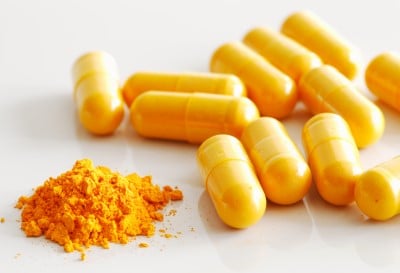
You can find turmeric curcumin with piperine online and in many health foods stores.
Better yet, it’s worth checking with an alternative medicine practitioner such as an herbalist or naturopathic physician. They can advise as to the best dosing for you and reputable brands.
Learn more:
Best turmeric capsules (Verywellfit.com review)
How to find an alternative medicine practitioner
Delicious ways to enjoy turmeric for sleep apnea
You may be thinking curry chicken, but there are plenty of delicious ways to enjoy the inflammation fighting benefits of turmeric.

Turmeric smoothies:
Berry Turmeric Smoothie
Carrot ginger turmeric smoothie
Everyday turmeric smoothie
Other remedies besides turmeric for sleep apnea inflammation
So far, we’ve talked quite a bit about the benefits of turmeric for sleep apnea.
However, there are other drug-free natural remedies that may help you fight inflammation:
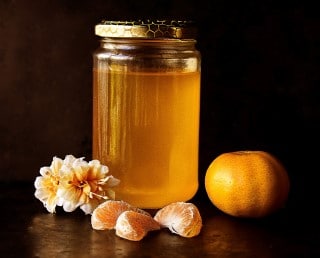
Honey
Proof it may help: human studies
Raw honey has been linked to health benefits for a variety of ailments including diabetes, cancer, asthma, and cardiovascular disease. It has anti-inflammatory activities may help with sleep apnea.

Garlic
Proof it may help: labortory and human studies
Garlic has been used for centuries. It contains an anti-inflammatory compound that can limit the effects of pro-inflammatory biochemicals.
You find garlic supplements online or at your local health food store.

Peppermint
Proof it may help: animal studies
Peppermint is another herb that contains bioactives that can help fight inflammation. You can try it as a medicinal tea or in a supplement.

Anti-inflammatory diet
Proof it may help: human studies
Specialized diets have grown in popularity as a natural way to fight inflammation in the body. The general idea is to eat less of the foods linked to inflammation and more of the foods known to fight inflammation.
Avoid: refined carbohydrates, fried foods, sugary beverages, red meat
Eat more: green leafy and other various vegetables, nuts, fatty fish, fruits, olive oil
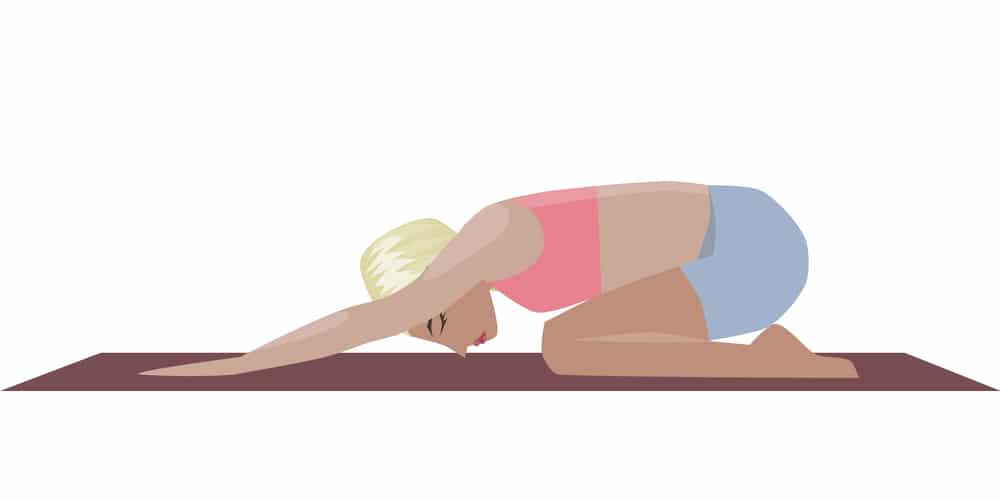
Stress management
Proof it may help: human studies
Stress has been linked to chronic inflammation. You can fight stress with meditation, yoga, tai chi, and various other practices.
Learn more:
Six relaxation techniques to reduce stress
Stress Management (HelpGuide.org)

Physical activity
Proof it may help: animal and human studies
Researchers have found that just 20 minutes of exercise can stimulate the immune system to be less inflammatory. Physical activity can also help fight stress and improve sleep.
Other things you can do for sleep apnea
Turmeric for sleep apnea shouldn’t be the only thing you do to improve your nights.
There are plenty of other things that can cause problems for sleep and make a bad situation worse.
You should be sure you’re practicing good sleep hygiene, the everyday things that set the stage for optimal sleep:
- Keep consistent wake up & sleep times
- Avoid naps
- Exercise during the day
- Avoid large meals, alcohol, or stimulants such as caffeine before bedtime
- Maintain a regular bedtime routine
- Avoid using TVs, laptops, or other electronics before sleep
- Keep your bedroom dark, cool, quiet, & relaxing
It’s also a good idea to get a check up as many other health issues can cause problems for sleep.
If you haven’t been officially diagnosed for sleep apnea, there’s still lots you can do on the cheap to get a diagnosis and treatment.
And if CPAP is not working out for you, there now more alternative therapies than ever worth a try.
Learn more:
Get your sleep apnea diagnosed and treated on the cheap
The latest CPAP alternatives
You may also be interested in:
Sources:
1. Estimation of the global prevalence and burden of obstructive sleep apnoea: a literature-based analysis, Lancet Respir Med. 2019 Aug;7(8):687-698.
2. “Turmeric”, NIH website
3. Curcumin: An age-old anti-inflammatory and anti-neoplastic agent, J Tradit Complement Med. 2016 Sep 9;7(3):339-346.
4. “Understanding acute and chronic inflammation”, Harvard Health Publishing website
5. “Obstructive sleep apnea linked to inflammation, organ dysfunction”, 2019, ScienceDaily website
6. “Which Came First: the Inflammation or the Sleep Apnea?”, 2017, Sleepreviewmag.com
7. Upper airway and systemic inflammation in obstructive sleep apnoea, Eur Respir J. 2016 Oct;48(4):1108-1117.
8. Therapeutic Roles of Curcumin: Lessons Learned from Clinical Trials, AAPS J. 2013;15(1):195-218.
9. Curcumin: A Review of Its’ Effects on Human Health, Foods. 2017;6(10):92.
10. “7 Ways Inflammation Is Affecting Your Sleep”, 2018, Bustle.com website
11. Turmeric: Potential Health Benefits, Nutrition Today: 1/2 2020 – Volume 55 – Issue 1 – p 45-56
Connect with us:
About Us
Better Sleep Simplified® was founded as a place for you to get clear and well-researched information.
Our goal is to make sure you know about your options so that you take action sooner rather than later.
Check us out on YouTube:
Watch and Learn
Helpful sleep tips, interesting sleep facts and statistics you want to know about
Affiliate Disclosure
This site is a participant in the Amazon Services LLC Associates Program and other affiliate advertising programs designed to provide a means for sites to earn advertising fees by advertising and linking to them.
Important: BetterSleepSimplified.com is for informational purposes only and is not intended or implied to be a substitute for professional medical advice, diagnosis, or treatment. Always consult a physician for sleep and health concerns. See additional information.

